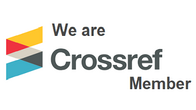Daya pikir kritis pemelajar BIPA 4 dalam penilaian keterampilan berbicara berkonteks sosiokultural
Abstract
Critical thinking skills can help BIPA learners improve their speaking competence. BIPA teachers need to stimulate learners' critical thinking by using sociocultural context. This study aims to address the need for stimulating learners' critical thinking in responding to sociocultural contexts. The research method used is descriptive-qualitative. The data source for this study is the performance assessment results of four BIPA level 4 learners. The findings of this study indicate that the average learner’s final score in the speaking assessment is 89. The acquisition of this final score indicates that the sociocultural context in BIPA evaluation can stimulate critical thinking for learners to express their opinions in speaking. Learners' critical thinking is reflected in the preparation of performance assessment, idea processing, and delivery of the speech context. Furthermore, this research can serve as an initial study to enhance learners' critical thinking skills in BIPA learning.
Keywords
Full Text:
PDF (Bahasa Indonesia)References
Byram, M., & Wagner, M. (2018). Making a Difference: Language Teaching for Intercultural and International Dialogue. Foreign Language Annals, 51, 140–151.
https://doi.org/10.1111/flan.12319
Erdoğan, V. (2019). Integrating 4C Skills of 21st Century into 4 Language Skills in EFL Classes. International Journal of Education and Research, 7(11), 113–124.
Faiza, F. S., & Irsyad, R. E. (2021). Tingkat Kemampuan Berbicara Pemelajar BIPA (Bahasa Indonesia Penutur Asing) Tingkat Pemula Menggunakan Tes Teks Deskripsi. Tabasa: Jurnal Bahasa, Sastra Indonesia, dan Pengajarannya, 2(2), 19–38. https://doi.org/10.22515/tabasa.v2i2.3883
Hughes, A. (2003). Testing for Language Teachers. Cambridge: Cambridge University Press.
Imperio, A., Staarman, J. K., & Basso, D. (2020). Relevance Of The Socio-Cultural Perspective In The Discussion About Critical Thinking. Journal of Theories and Research in Education, 15(1), 1–19.
Kusmaryani, W., Musthafa, B., & Purnawarman, P. (2020). Optimizing Students’ Speaking and Critical Thinking through Students’ Reflective Practice in Socratic Circle Speaking. Proceedings of the 1st Bandung English Language Teaching International Conference (BELTIC), Bandung, 201–209. https://doi.org/10.5220/0008215802010209
Miles, M. B., & Huberman, M. (1992). Analisis Data Kualitatif. Jakarta: Universitas Indonesia.
Mohammadi, H., & Izadpanah, S. (2019). A Study of the Relationship between Iranian Learners’ Sociocultural Identity and English as a Foreign Language (EFL) Learning Proficiency. International Journal of Instruction, 12(1), 53–68. https://doi.org/10.29333/iji.2019.1214a
Muhammadiyeva, H., Mahkamova, D., Valiyeva, S., & Tojiboyev, I. (2020). The Role of Critical Thinking in Developing Speaking Skills. International Journal on Integrated Education, 3(1), 62–64.
Namaziandost, E., Abedi, P., & Nasri, M. (2019). The Role of Gender in the Accuracy and Fluency of Iranian Upper-intermediate EFL Learners’ L2 Oral Productions. Journal of Applied Linguistics and Language Research, 6(3), 110–123.
Nitisakunwut, P., Nutayangkul, T., & Liang-Itsara, A. (2023). The Sociocultural Perspective On The Use Of L1 As A Supporting Tool For EFL Learning. English Language Teaching, 16(2), 74–81. https://doi.org/10.5539/elt.v16n2p74
Novita, D., Purwati, O., & Anam, S. (2022). In-service EFL Teachers’ Sociocultural-based TPACK Beliefs and Practices: Voice of Teachers and Students. Computer Assisted Language Learning Electronic Journal (CALL-EJ), 23(1), 278–293.
Orsini-Jones, M., & Lee, F. (2018). Emerging Online Politeness Patterns. In Intercultural Communicative Competence for Global Citizenship. London: Palgrave Macmillan.
Pakula, H.-M. (2019). Teaching speaking. Apples - Journal of Applied Language Studies, 13(1), 95–111. https://doi.org/10.17011/apples/urn.201903011691
Paul, R., & Elder, L. (2020). Critical Thinking: Learn The Tools The Best Thinkers Use (3rd ed.). Harlow, Essex: Pearson Education Limited.
Pho, P. V. (2018). Fluency As Successful Communication. Proceedings of the 1st National Conference on English Language Teaching Upgrade: A Focus on Fluency (CELTU 2018), 15–24, Ho Chi Minh City. Retrieved from https://www.researchgate.net/profile/International-Journal-Of-Tesol-Education
Rahmawati, A. (2021). EFL Students’ Critical Thinking in Speaking Activities (A Descriptive Study at English Conversation Club (ECC)). 6th International Conference on Science, Education and Technology (ISET 2020), 211–220, Semarang. Retrieved from https://www.atlantis-press.com/proceedings/iset-20/125964476.
Ramezani, R., Larsari, E. E., & Kiasi, M. A. (2016). The Relationship Between Critical Thinking And EFL Learners’ Speaking Ability. English Language Teaching, 9(6), 189–198.
Richards, J. C., & Schmidt, R. W. (2013). Longman Dictionary of Language Teaching and Applied Linguistics. London: Routledge.
Saleh, S. E. (2019). Critical Thinking As A 21st Century Skill: Conceptions, Implementation and Challenges in the Efl Classroom. European Journal of Foreign Language Teaching, 4(1), 1–16. https://doi.org/10.5281/ZENODO.2542838
Sandelowski, M. (2000). Whatever Happened to Qualitative Description?. Research In Nursing & Health, 23(4), 334–340.
Sathya, K. (2019). Speaking Skills for Students. S. Preethi Educational Journal, 3(4), 26–32.
Shavelson, R. J., Zlatkin-Troitschanskaia, O., Beck, K., Schmidt, S., &
Marino, J. P. (2019). Assessment Of University Students’ Critical Thinking: Next Generation Performance Assessment. International Journal of Testing, 19(4), 337–362.
Vygotsky, L. S. (1978). Mind In Society: The Development of Higher Psychological Processes. Cambridge: Harvard University Press.
Wang, J. (2022). Interactional Modifications Develop L2 Speaking Skills: A Case Study of L2 Adolescent Learners on YouTube. Presented at the 2022 3rd International Conference on Language, Art and Cultural Exchange(ICLACE 2022), Luoyang, China. Luoyang, China. Retrieved from https://doi.org/10.2991/assehr.k.220706.111
DOI: https://doi.org/10.26499/jbipa.v5i1.6184
Refbacks
- There are currently no refbacks.
Publisher:
Badan Pengembangan dan Pembinaan Bahasa, Kementerian Pendidikan dan Kebudayaan Republik Indonesia
Address: Jl. Daksinapati Barat 4 No.11, RT.11/RW.14, Rawamangun, Kec. Pulo Gadung, Kota Jakarta Timur, Daerah Khusus Ibukota Jakarta 13220 Phone: +62 (021) 4896558

Jurnal Bahasa Indonesia bagi Penutur Asing (JBIPA) is licensed under a Creative Commons Attribution-NonCommercial 4.0 International License.
View My Stats -->





